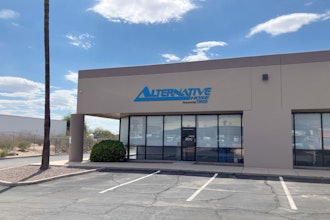
Adding Value to Your Distribution Business
How value-added services can increase revenue and differentiate your company
from the competition
Epicor White Paper
i
Adding Value to Your Distribution Business
Introduction
A fundamental principal of business operations is distinguishing your company from the
competition. Since larger companies often have the advantage of scale, smaller companies must
find ways to differentiate themselves to appeal to new customers, retain existing customers, and
add new revenue streams. One way distributors can do this is by offering value-added services
to their customers.
In 2017, a joint study was conducted by Industrial Supply, Benfield Consulting, and Epicor
Software to determine the annual percentage of distributor sales from value-added services1.
The study found that:
X 20% of firms have less than 5% of their sales represented by services
X 19% of firms have between 6% and 10% of their sales represented by services
X 31% of firms have between 11% and 25% of their sales represented by services
X 12% of firms have between 26% and 50% of their sales represented by services
X 18% of firms did not respond to the question
Along with using value-added services to stand out from the competition, the research found that:
X Customers who purchase services also purchase a wider range of products (27%)
X Customers who purchase services are less likely to switch suppliers (23%)
X Services are less price-sensitive than products (23%)
X Services have higher gross margins than products (17%)
X Vendors invest in services because it helps their product sales (10%)
This white paper will help identify how to choose value-added services for your distribution
business, as well as the areas that can be optimized to streamline the process.
1 “Value-Added Services in a Self-Service Culture,” Industrial Supply Magazine, Benfield Consulting, 2017.
1
Adding Value to Your Distribution Business
Find Value-Added
Services That Will Benefit
Your Existing Customers
Offering value-added services is nothing
new for distributors—many have been
providing kitting, assembly, and other
services for some time. However, many
distributors decide to offer a value-added
service because it makes most sense to
them—either from a revenue or product
extension perspective—rather than
their customers. While this is a good
strategy from a business and operations
perspective, it doesn’t take customer
demand into consideration. It’s important
to ensure that the service will actually
benefit existing customers, lure new
customers away from the competition,
and is something you can deliver upon
without a huge amount of rework or
investment in order for the venture to be
successful and profitable.
How do you determine which services
will most benefit your customers? Start
by asking them. A quick survey can
reveal insight into services that would
benefit your customers and it may also
help you gauge the price threshold they
are willing to pay for these services. Since
employees are the ones who are mostly
interacting with customers, it’s also a
good idea to ask them if they’ve received
specific requests or have input on the
ideas the business is considering.
Value-added services can be
implemented in many areas of your
distribution business, including:
X Production—Assembly, light
manufacturing, and fabrication
X Service—Field service and
maintenance, in-house repair,
solution design, and engineering
X Products—Project staging,
custom products
It’s also vital to measure how much it will
cost to implement the service—both with
regards to capital investment and labor—and
what your expected return on investment
(ROI) and timeline is for recouping the costs
associated with offering the service. If you’ve
never offered value-added services before, we
recommend that you attempt to incorporate
something that can be achieved by existing
human and equipment resources as much
as possible—with a plan for continued
development and investments to occur
over time.
Examine The
Competitive Landscape
To truly add value to your customers—and to
your bottom line—distributors should identify
value-added services that set them apart
from the competition. Start by examining the
competitive landscape to identify what types
of services other distributors are offering—as
well as services they are not providing. This
will help you uncover areas of opportunity
and help to determine what the market is
willing to accept with regard to cost and
service offerings.
For example, you may find that a large
percentage of your competitors are
offering the same type of service you’re
considering launching. Perhaps the service
is a natural extension of your business and
will be relatively simple and cost-effective to
implement. In this scenario, you may decide
to offer the service at a lesser price to entice
new customers. However, unless you can
really outperform the competition, increasing
the opportunity for customers to obtain this
service may erode its value to the point where
customers no longer feel like they should have
to pay for it.
Conversely, you may discover a great
opportunity to offer a service that no
competitors currently provide. Before you dive
in head first, determine if there’s a reason
no one else is providing the service—you
may find that other companies have tried
and failed for reasons that may also plague
your business. Similar to new product
development, this is a great arena to learn
from others’ mistakes.
Ultimately, your goal should be to find a
niche service that you can offer that very
few competitors provide—and do it well.
Another key to success is to ensure that the
service is priced clearly and appropriately to
avoid confusion from customers—and even
internal sales personnel—with regard to what
is included in the price of the service. Since
customers have a tendency to ask for more
services without incurring additional expense,
it’s important that requirements are well
defined and that the service is clearly outlined
to avoid scope creep.
Monitor Success and
Measure ROI
Perhaps one of the more challenging elements
to implementing new value-added services
to your distribution business is monitoring its
success and measuring ROI on the program.
Developing defined processes around the
implementation, delivery, and utilization of the
service is pivotal to its ultimate success.
One of the ways to accomplish this is by
developing a service team that can assess
ongoing program performance and provide
suggestions for improvements. This—in
conjunction with the utilization of an
enterprise resource planning (ERP) system to
automate, track, and provide analytical data—
can provide key insight on ROI. For example,
ERP systems can be used to track and manage
manufacturing, field service, maintenance
fees, and consulting services.
An online storefront may also be used to
market and sell value-added services—
alleviating time and effort from customer
service, inside sales, and/or accounting that
would otherwise be used to support ordering
and payment. When eCommerce is rolled
into an ERP system, it further assists with
tracking ROI.
2
Adding Value to Your Distribution Business
About Epicor
Epicor Software Corporation drives business growth. We provide flexible, industry-specific software designed to fit the precise needs of our
manufacturing, distribution, retail, and service industry customers. More than 45 years of experience with our customers’ unique business
processes and operational requirements are built into every solution—in the cloud or on premises. With this deep understanding of your
industry, Epicor solutions dramatically improve performance and profitability while easing complexity so you can focus on growth. For more
information, connect with Epicor or visit www.epicor.com.
Contact us today [email protected] www.epicor.com
The contents of this document are for informational purposes only and are subject to change without notice. Epicor Software Corporation makes no guarantee, representations, or warranties with regard
to the enclosed information and specifically disclaims, to the full extent of the law, any applicable implied warranties, such as fitness for a particular purpose, merchantability, satisfactory quality, or reason-
able skill and care. This document and its contents, including the viewpoints, dates, and functional content expressed herein are believed to be accurate as of its date of publication, October 2018. The re-
sults represented in this testimonial may be unique to the particular user as each user’s experience will vary. The usage of any Epicor software shall be pursuant to the applicable end user license agreement,
and the performance of any consulting services by Epicor personnel shall be pursuant to applicable standard services terms and conditions. Usage of the solution(s) described in this document with other
Epicor software or third-party products may require the purchase of licenses for such other products. Epicor and the Epicor logo are registered trademarks or trademarks of Epicor Software Corporation in
the United States, certain other countries and/or the EU. All other trademarks mentioned are the property of their respective owners. Copyright © 2018 Epicor Software Corporation. All rights reserved.
Summary
Incorporating the right value-added
services into your distribution business
can have a tremendous impact on
your bottom line, but it requires
careful planning and thoughtful
implementation. The upfront investment
warranted by the services must not
outweigh the long-term potential
profitability of the program. Leveraging
existing systems—including ERP software—as
well as capital and personnel resources can
help mitigate the risk and keep expenses
in check.
Modern business systems—like Epicor® ERP
solutions—are designed to integrate processes
and maximize productivity. Business systems
from Epicor can also support the unique
processes of a wholesale distributor like no
other software provider. For more than 45
years, Epicor software solutions have enabled
distributors to improve their productivity by
eliminating or connecting disparate systems
and streamlining tasks.
Visit www.epicor.com/distribution to learn
how Epicor ERP solutions can help you grow,
thrive, and compete in the ever-changing
distribution landscape.






















